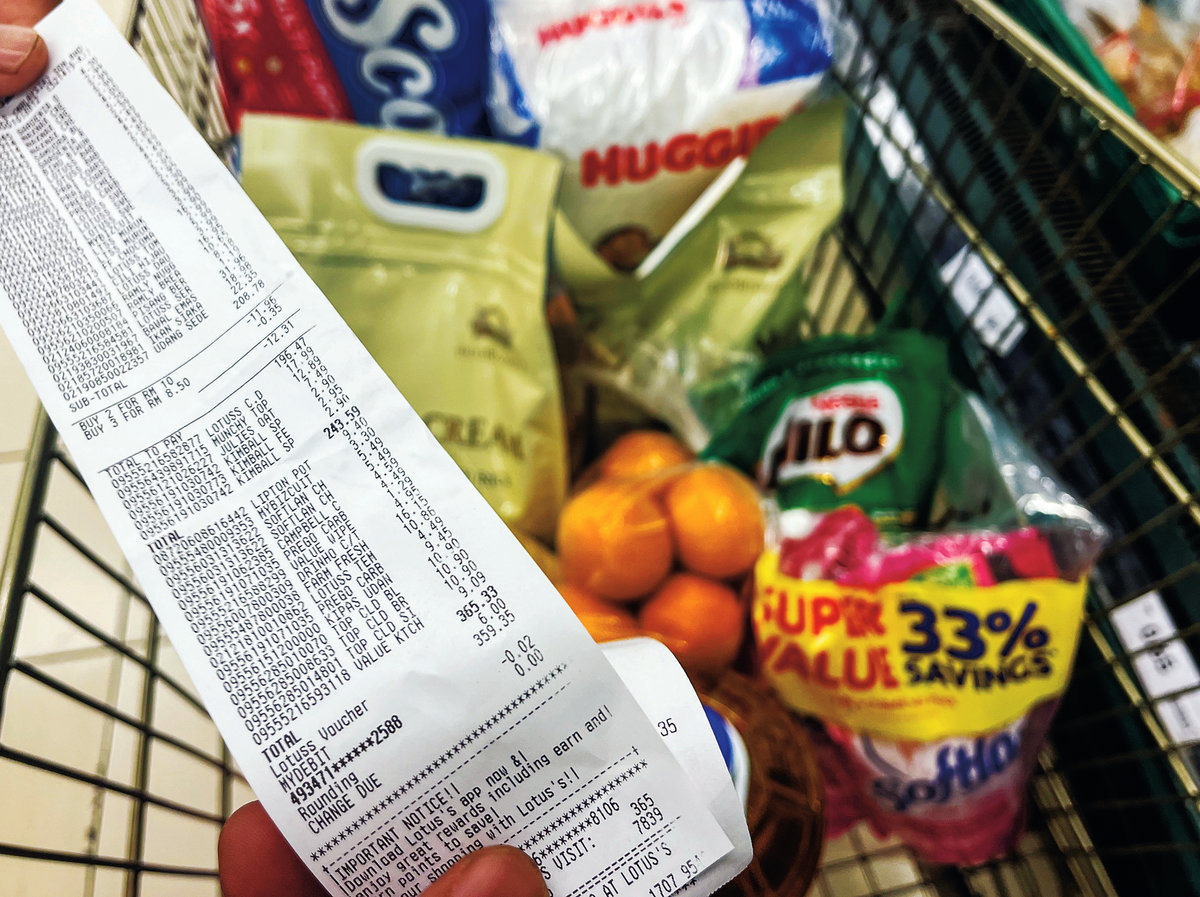PETALING JAYA: Once seen as the engine of Malaysia’s economy, the M40 or middle-income group is now fighting to stay afloat – squeezed by rising living costs, stagnant wages and the expanded Sales and Service Tax (SST).
For 37-year-old Mohd Kamarrul, providing for a family of four now means holding down two jobs. By day, he works full-time in an office. At night and on weekends, he delivers food or helps at events to make ends meet.
“Groceries and utility bills are eating up a bigger chunk now. We used to spend around RM1,100 on groceries each month. Now it’s RM1,500 or more.”
Some of that, he admits, is due to his growing children. But the financial strain has become constant.
He said family dinners are now a rare treat. His daughter’s piano lessons were the first to go. School holiday trips have turned into quick mall outings.
Although they are managing, Kamarrul said their savings are dwindling fast.
“Car repairs, school supplies – we’ve dipped into our savings more than once this year. The government helps the B40, and that’s important. But we’re slipping too. Some tax breaks or fuel subsidies would go a long way. Right now, we’re on our own.”
Ray (not his real name), 33, is in a similar boat but with fewer safety nets. Between a housing loan, car payments and student debt, his single income barely stretches beyond monthly commitments.
“I used to have some room to save or invest, but now I plan around survival. Streaming, online shopping – all that’s cut. I’m just trying to get through the month. Some months I delay loan payments just to keep things afloat. It’s not ideal, but I don’t have a choice.”
He believes policies should reflect the new reality, especially for the young ones.
“Freeze SST on essentials. Give tax relief for student loans. Just something to help people like us.”
In Kepala Batas, Penang, teacher Mohamad Firdaus Ab Rahman, 36, feels similar pressure, despite living in a semi-urban setting.
“It’s slightly cheaper here than in KL, but raising four kids is still expensive, even with both of us working full-time,” he said.
He and his wife spend about RM2,500 a month on childcare – relying on babysitters and van services to coordinate their children’s daily routines.
Once a promising youth footballer, Mohamad Firdaus left competitive sports behind for the security of a teaching career.
He doesn’t regret the choice but it hasn’t shielded him from stress.
“We’re not struggling day to day, but one unexpected bill like a car breakdown or a medical emergency could derail our whole month.”
For Izzati Abdul Rahman, 45, the financial shift has been even more drastic.
“Five years ago, I could save, invest and take my kids on holidays. Now we’re living paycheck to paycheck,” she said.
Izzati has cancelled streaming services, gym memberships and scaled back her children’s extracurriculars. Her grocery strategy now hinges on timing.
“After 7pm, meat and vegetables are usually discounted, so I buy in bulk and freeze them,” she said.
Earlier this year, she had to use her credit card for her son’s dental procedure, and later she took out a personal loan for urgent home repairs.
“There’s no buffer anymore. One big bill, and we’re in trouble.”
Her biggest fear now is a medical emergency.
“Just because we earn a little more than the B40 doesn’t mean we’re not struggling.
“Help should be based on how people actually live, not just gross income. We’re not asking for handouts but just fairness.”
As SST-driven prices ripple across the economy, many M40 families are quietly slipping into survival mode, trading comfort for caution, plans for panic and stability for silent sacrifice.









